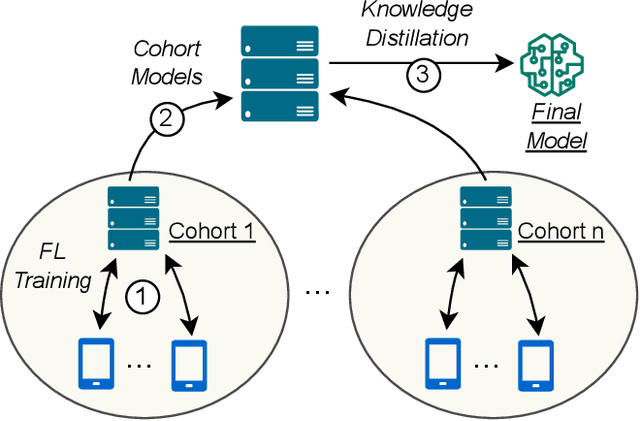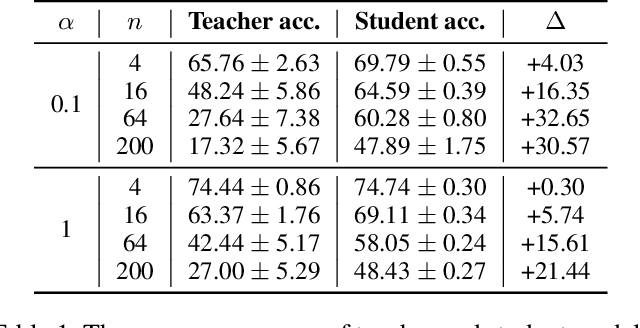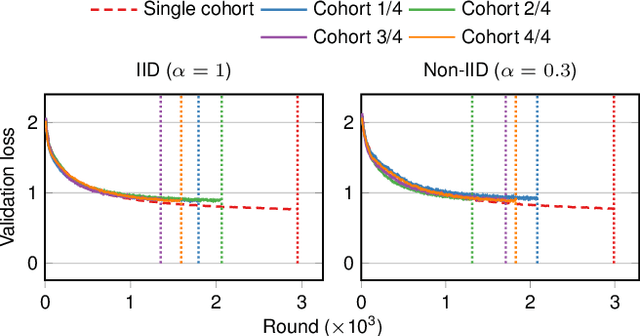Harnessing Increased Client Participation with Cohort-Parallel Federated Learning
Paper and Code
May 24, 2024



Federated Learning (FL) is a machine learning approach where nodes collaboratively train a global model. As more nodes participate in a round of FL, the effectiveness of individual model updates by nodes also diminishes. In this study, we increase the effectiveness of client updates by dividing the network into smaller partitions, or cohorts. We introduce Cohort-Parallel Federated Learning (CPFL): a novel learning approach where each cohort independently trains a global model using FL, until convergence, and the produced models by each cohort are then unified using one-shot Knowledge Distillation (KD) and a cross-domain, unlabeled dataset. The insight behind CPFL is that smaller, isolated networks converge quicker than in a one-network setting where all nodes participate. Through exhaustive experiments involving realistic traces and non-IID data distributions on the CIFAR-10 and FEMNIST image classification tasks, we investigate the balance between the number of cohorts, model accuracy, training time, and compute and communication resources. Compared to traditional FL, CPFL with four cohorts, non-IID data distribution, and CIFAR-10 yields a 1.9$\times$ reduction in train time and a 1.3$\times$ reduction in resource usage, with a minimal drop in test accuracy.
 Add to Chrome
Add to Chrome Add to Firefox
Add to Firefox Add to Edge
Add to Edge